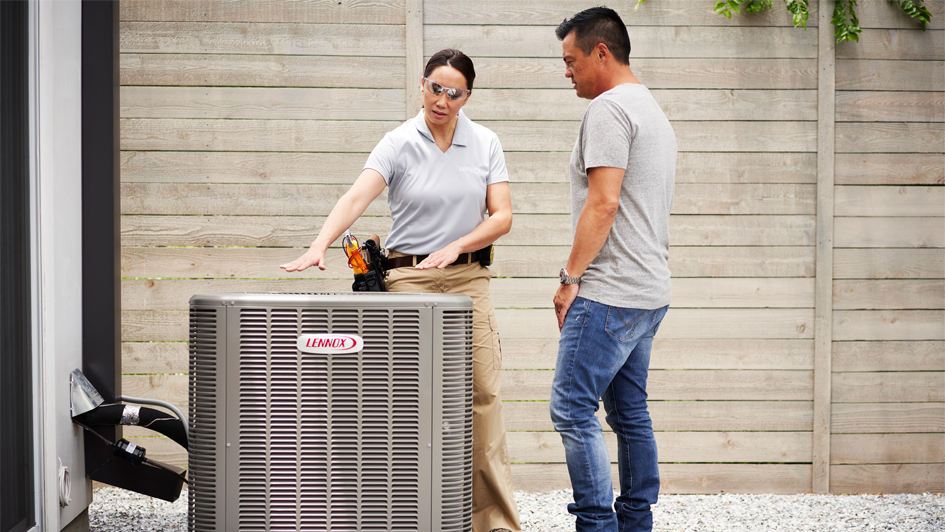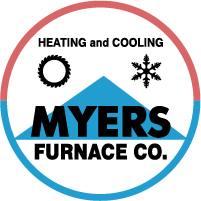
Selecting the correct HVAC system size for your home is crucial. It impacts your ability to enjoy your home and your utility costs. In this HVAC sizing guide, the professionals at Myers Furnace Company will explain how to determine the right size of heating and cooling system for your home, what features they take into account and why selecting the best size HVAC is so important to your convenience.
What Impact Does HVAC System Size Make on Home Comfort and Efficiency
Proper HVAC size differs for each home. Your HVAC system needs enough heating and cooling capacity to make your entire home comfortable. It shouldn't struggle to keep up in extremely warm or cold weather. However, an HVAC system that's oversized is inefficient, wastes money and can lead to complications that make your home less agreeable.
Critical Features Pros Consider for HVAC Sizing in Belton, MO
To determine the appropriate HVAC system size for a home, the HVAC installation specialists at Myers Furnace Company conduct a Manual J load calculation to determine how many British Thermal Units (BTUs) are necessary to heat and cool and the home. A Manual J calculation evaluates multiple features of your home, such as:
- Size of the home: The size of the home is arguably the most important factor in selecting the size of your HVAC system. How much space will your new HVAC system be required to heat and cool?
- Home insulation: A well- insulated home maintains the indoor temperature better, which can affect how much heating and cooling power you demand.
- Regional Climate: The local climate in Belton, MO, plays a significant role in finding the appropriate size HVAC. Homes in hotter climates may require a system with an increased cooling capacity, while cooler regions may need less.
- Window size: Windows can be a significant source of energy loss. The number, size, type of glass used, and whether they’re single paned or double paned can considerably affect heating and cooling requirements.
- Amount of sun: A home that receives a substantial sunlight will automatically be warmer than one that doesn't, which affects central air sizing. Orientation in relation to prevailing winds and number of nearby shade trees also influence the proper HVAC size.
Most Common DIY HVAC Size Mistakes
A frequent mistake homeowners make when sizing their own HVAC system is to base their decision on square footage. Although the square footage of your home has a major impact on what size HVAC you need, other considerations also influence how much heating and cooling capacity is required to keep your home cozy.
Another typical mistake is not hiring a professional. It's crucial to have an experienced HVAC technician perform a Manual J calculation, which takes all the essential elements into consideration to find the right HVAC size.
Why Is Your Home HVAC System Size Important?
An inadequately sized system can lead to comfort problems and cost you money. Here's a detailed view of the pitfalls of a wrong-sized HVAC:
Undersized HVAC system problems:
- Less longevity and breakdowns: HVAC systems that are too small often seem to run all the time to try to heat or cool a home, leading to more wear and tear. This can result in breakdowns and even require premature HVAC replacement.
- An uncomfortable home: Small HVAC systems don't have enough power to heat and cool your entire residence, which can lead to hot, stuffy rooms or areas of your home that are chilly and uncomfortable.
- Increased energy expenses: An underpowered HVAC system that operates nonstop trying to keep up uses more energy, increasing your monthly power bills and wasting your hard-earned money. A properly sized and energy-efficient HVAC system consumes less energy and helps to reduce your monthly bills.
Issues from oversized HVAC systems
- Wasted money: Larger HVAC systems tend to cost more money, so investing in more heating and cooling capacity than your home requires is a waste of money.
- Reduced lifespan and breakdowns: HVAC systems that are oversized often start and stop frequently, referred to as short cycling. This can result in wear and tear on your machine, reducing its service life or requiring HVAC repair.
- Increased humidity: An HVAC system should regulate indoor humidity, but an oversized HVAC system may lack adequate runtime to accomplish that task. This can lead to indoor air quality issues, and encourage the growth of mildew or mold.
Get Professional HVAC Sizing and Replacement by Working with Myers Furnace Company
Now that you understand some of the things that impact what HVAC system size is right for you, it's time to choose a new heating and cooling system. Myers Furnace Company is here to help.
We’ll evaluate your home and give you a free, no-obligation estimate for HVAC installation. We’ll assess your home to identify the ideal HVAC system size for you, so you can enjoy a cozy environment every day of the year.
Call 816-370-5244 today to set up your free estimate for HVAC installation in Belton, MO.
